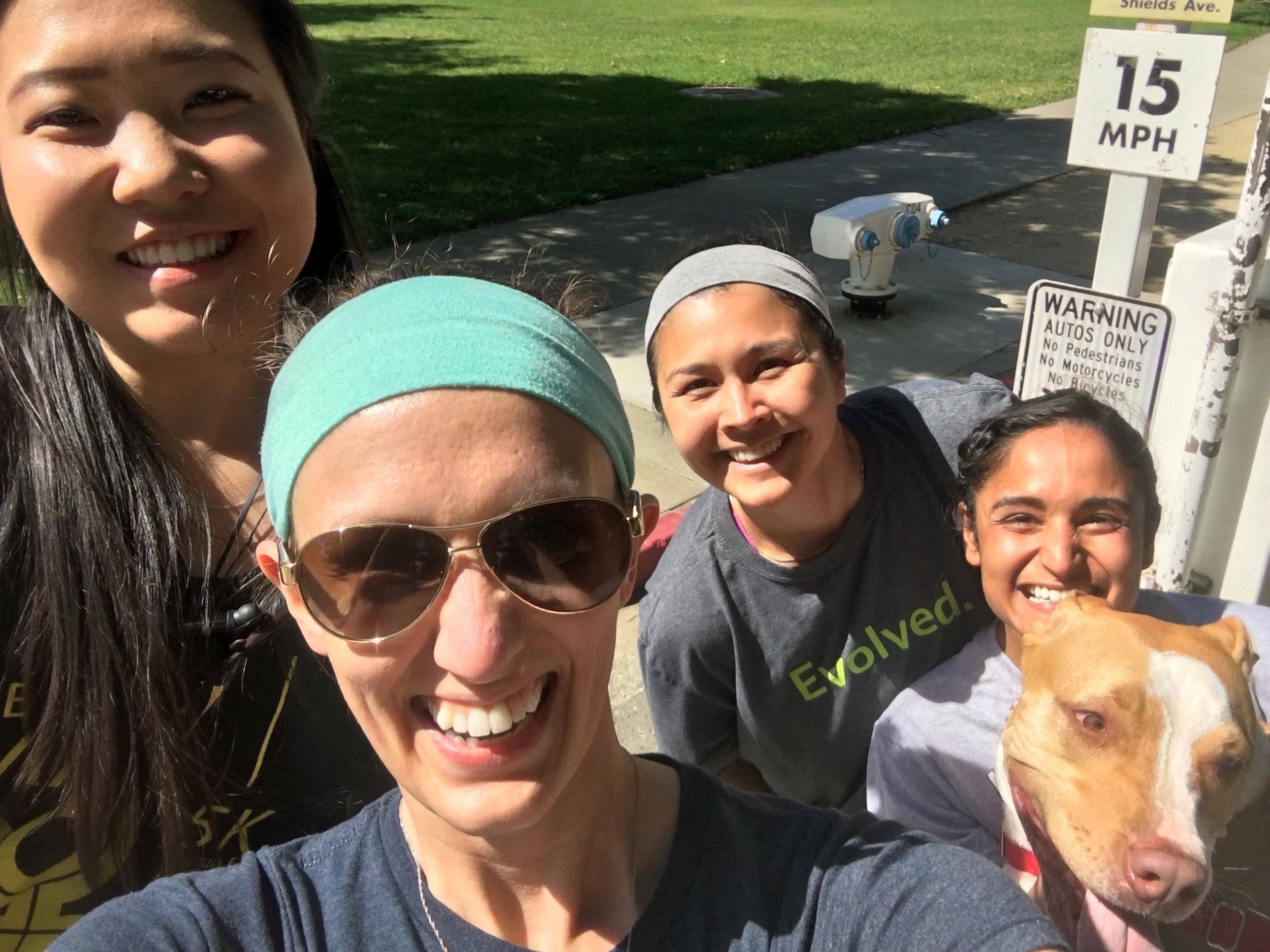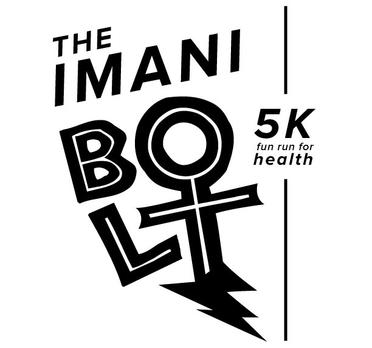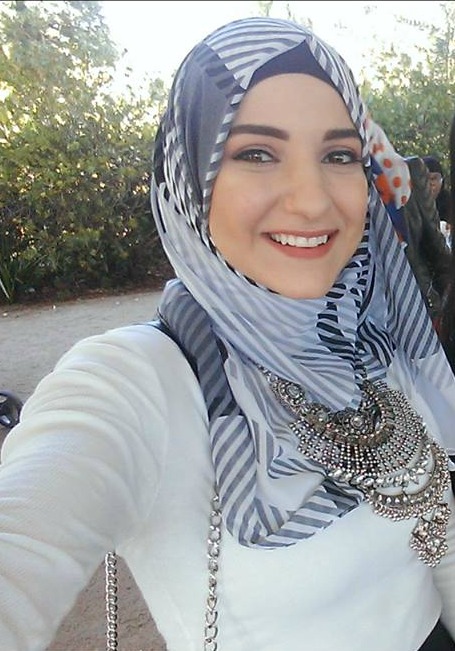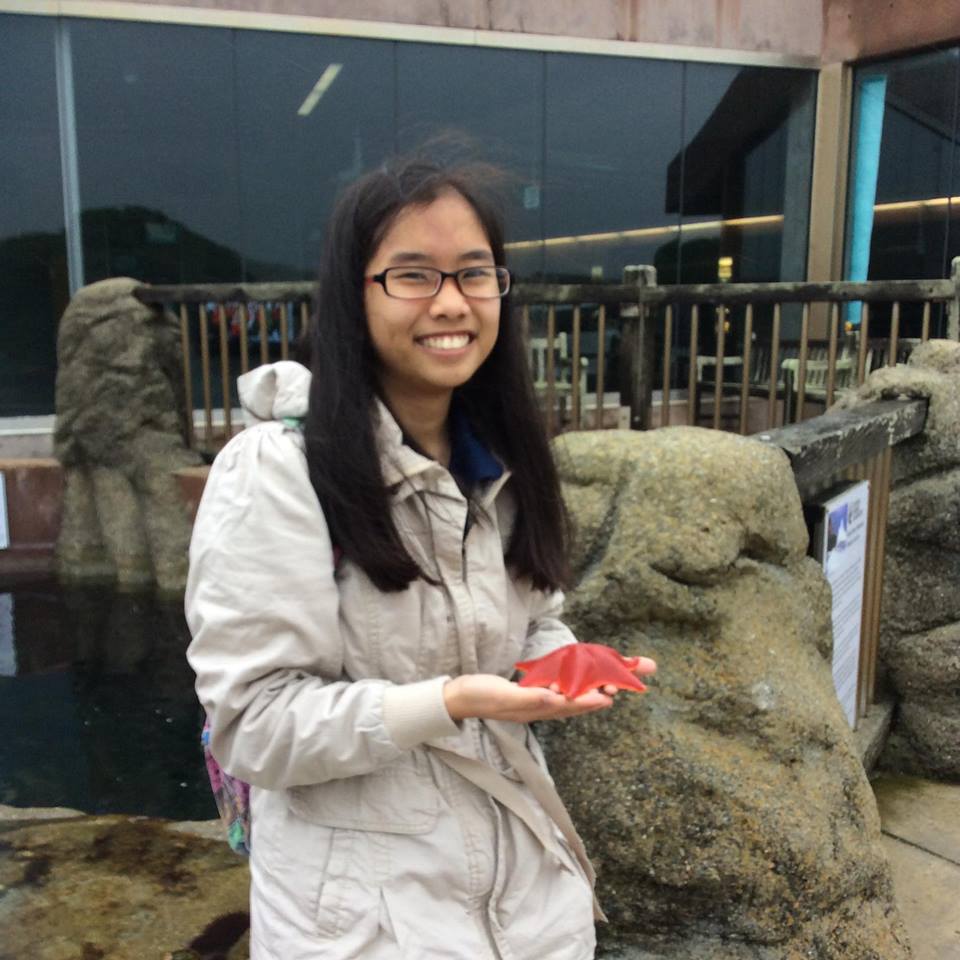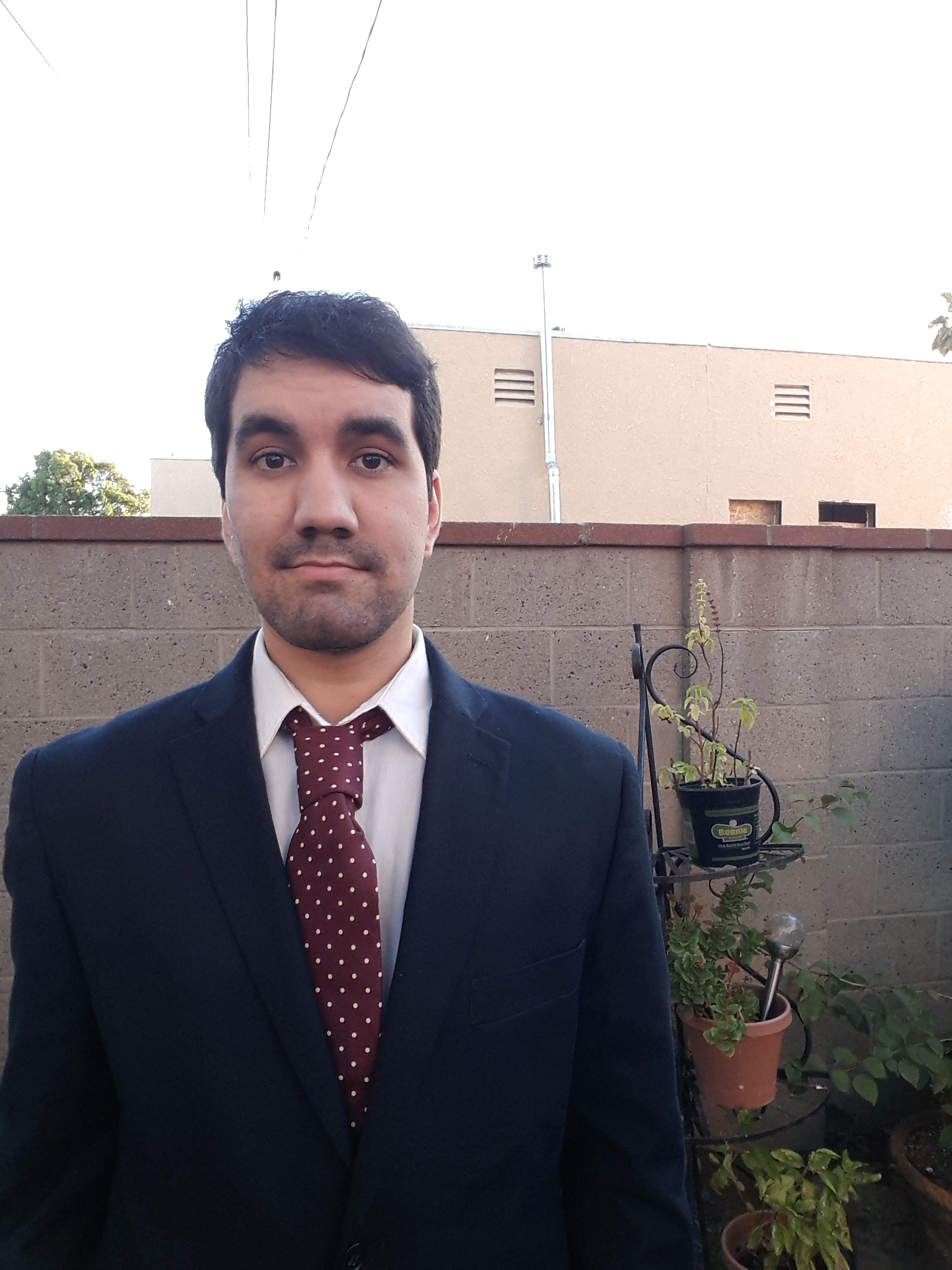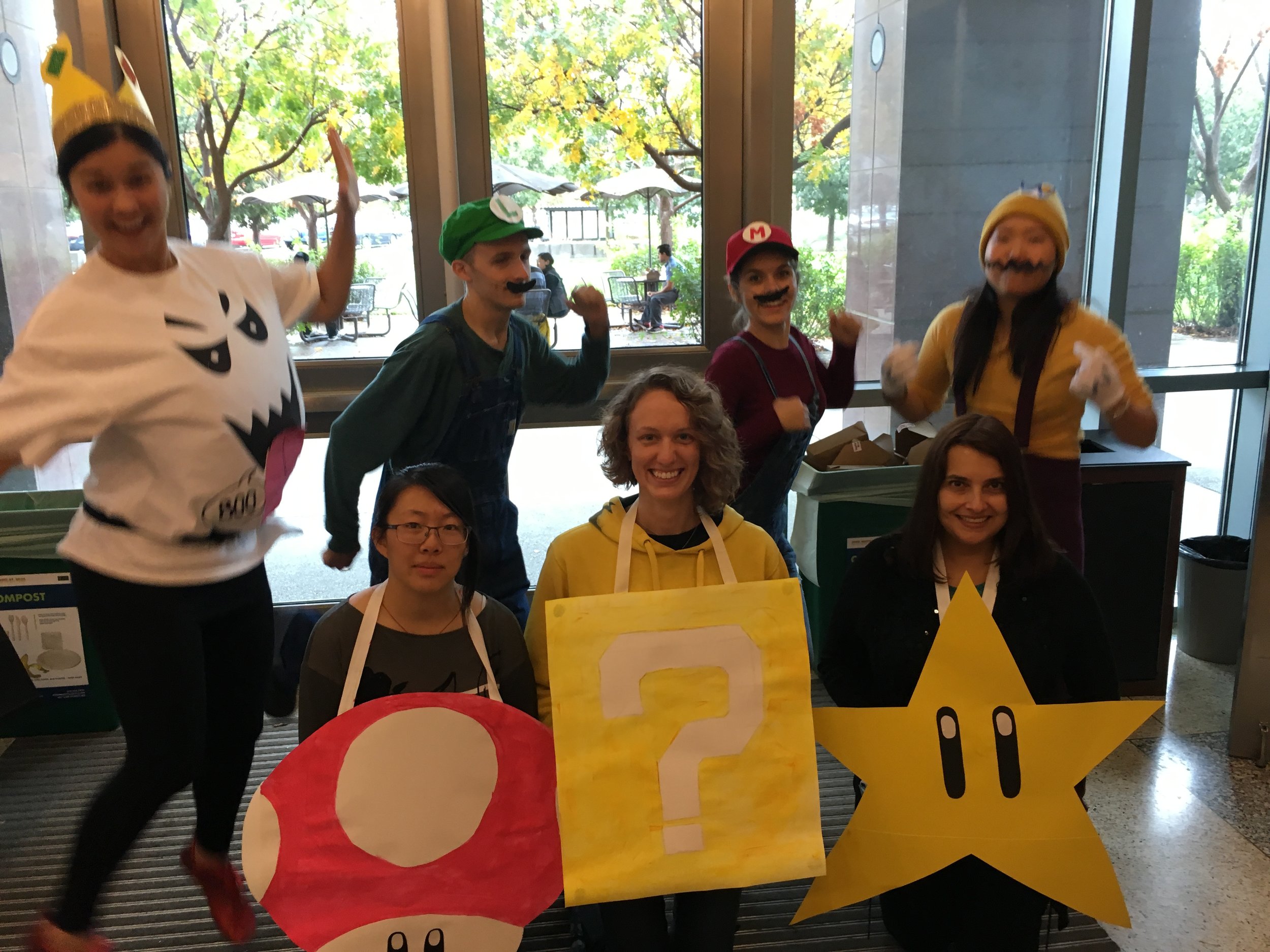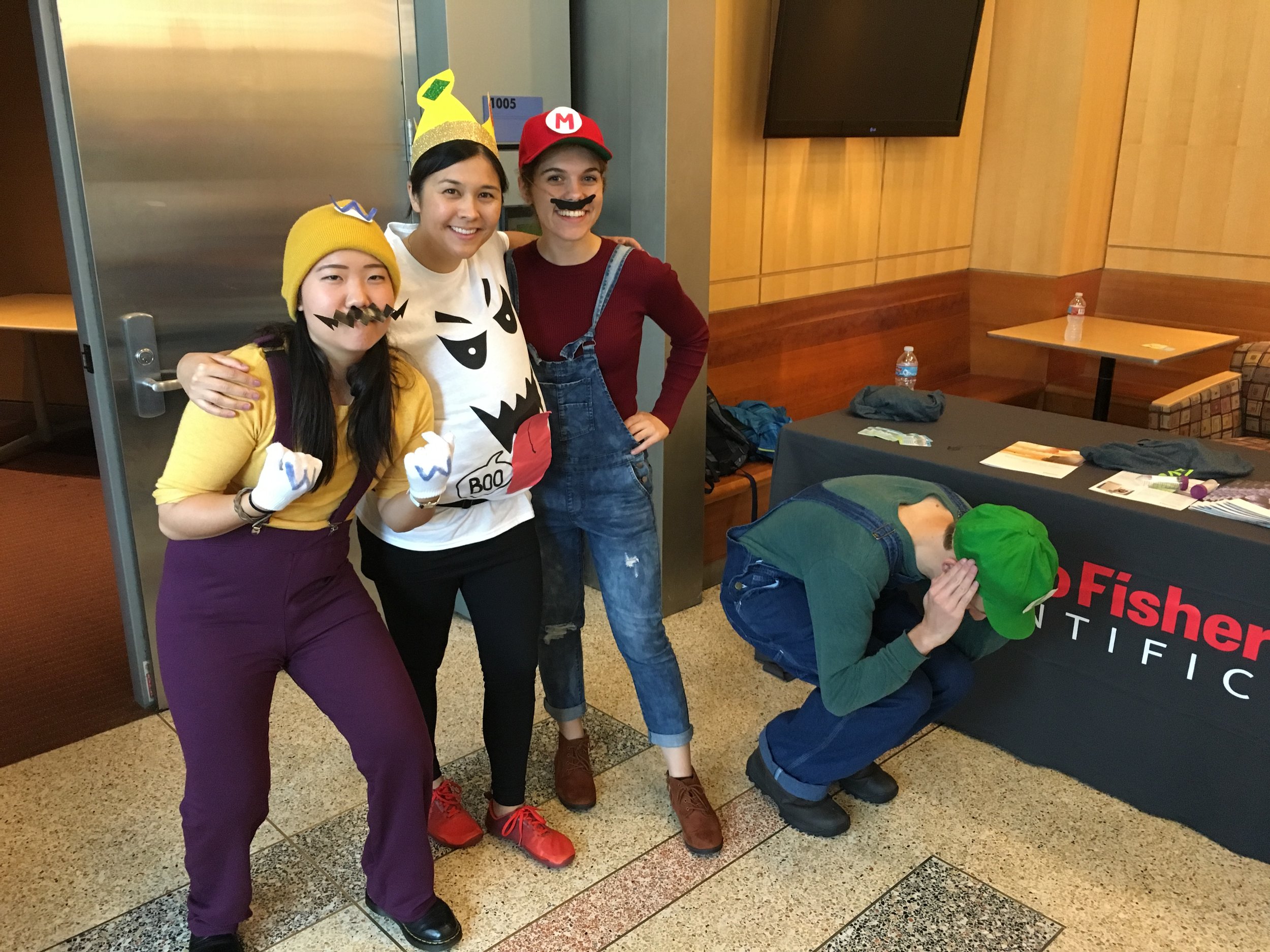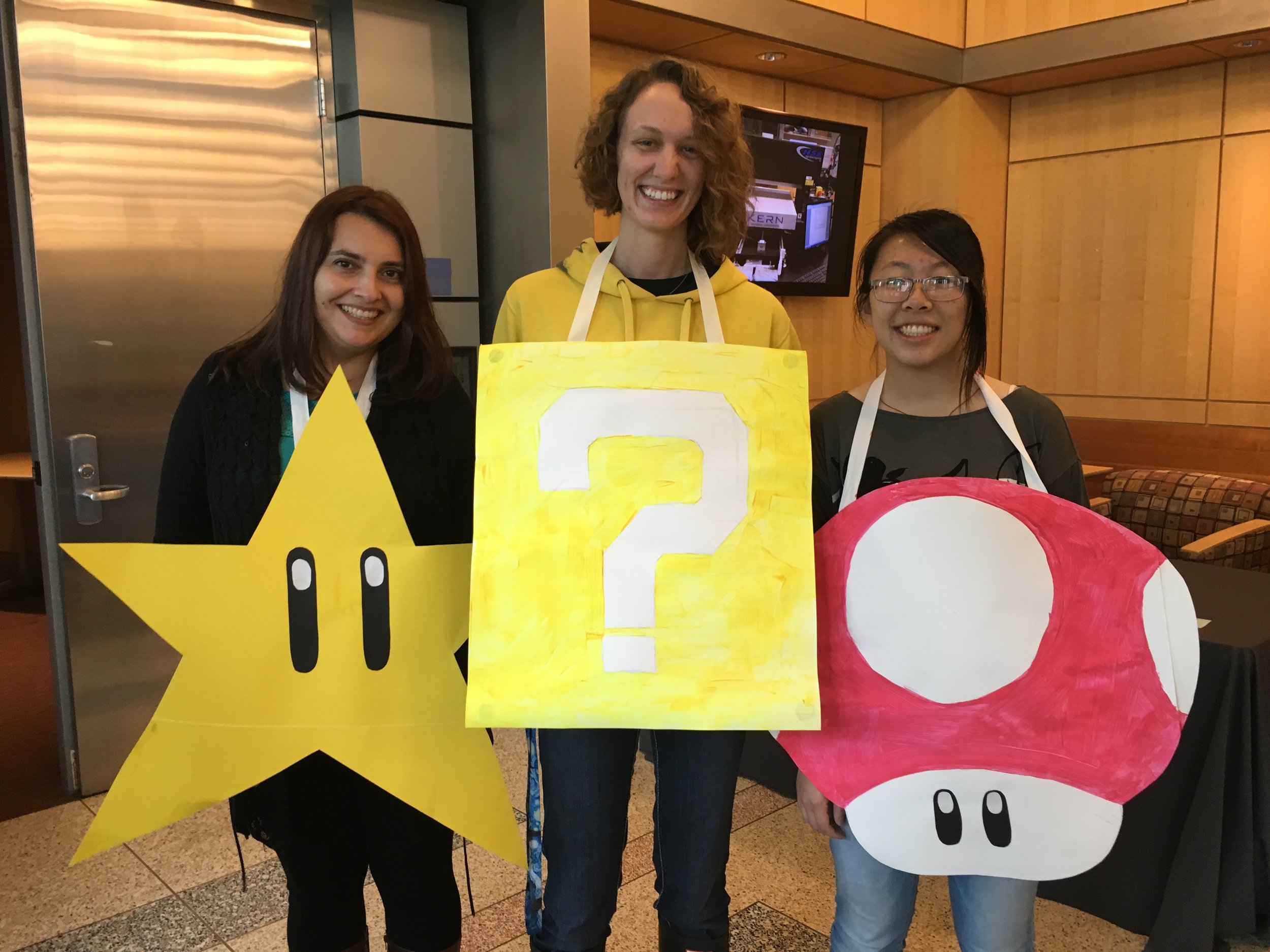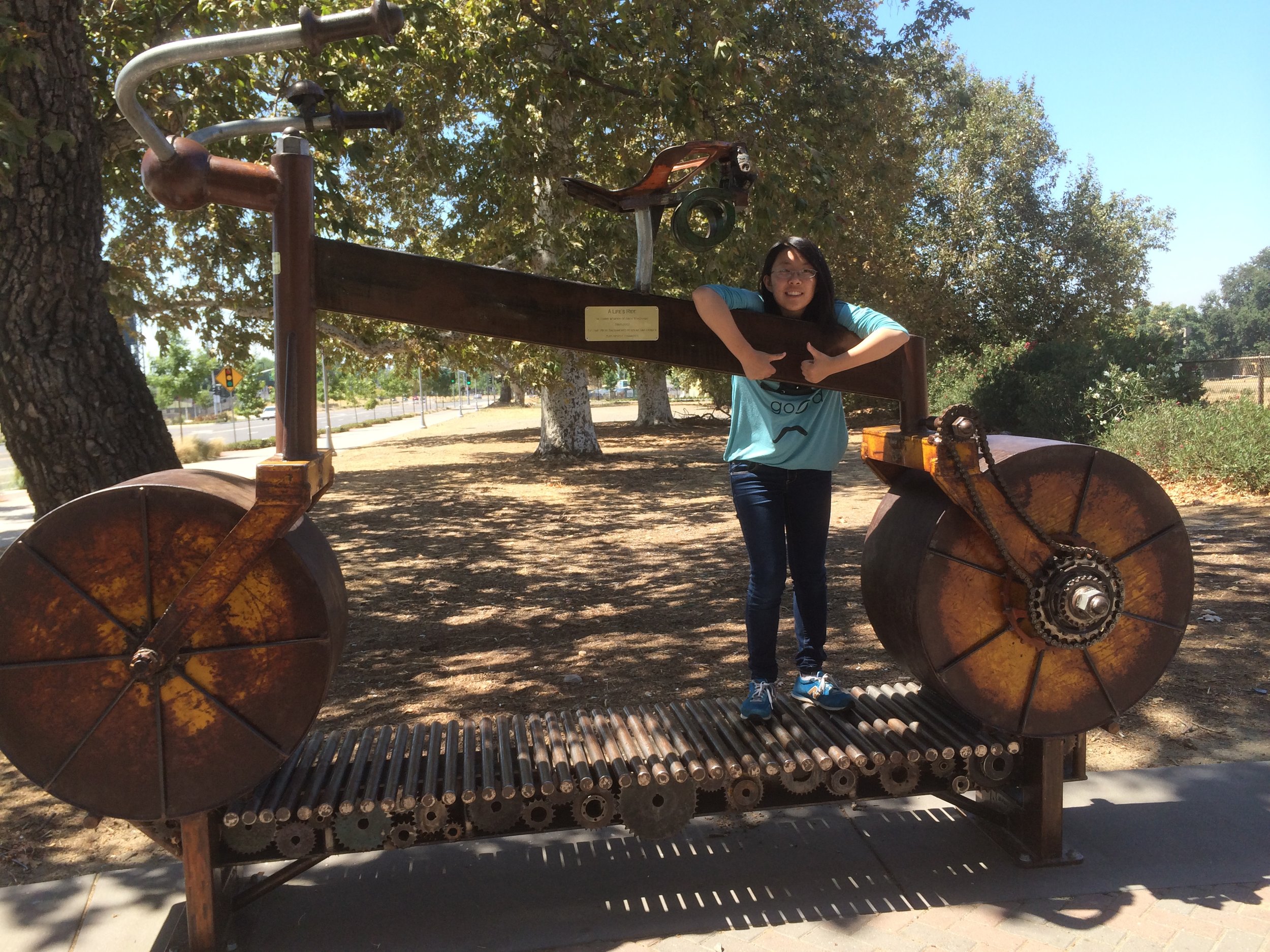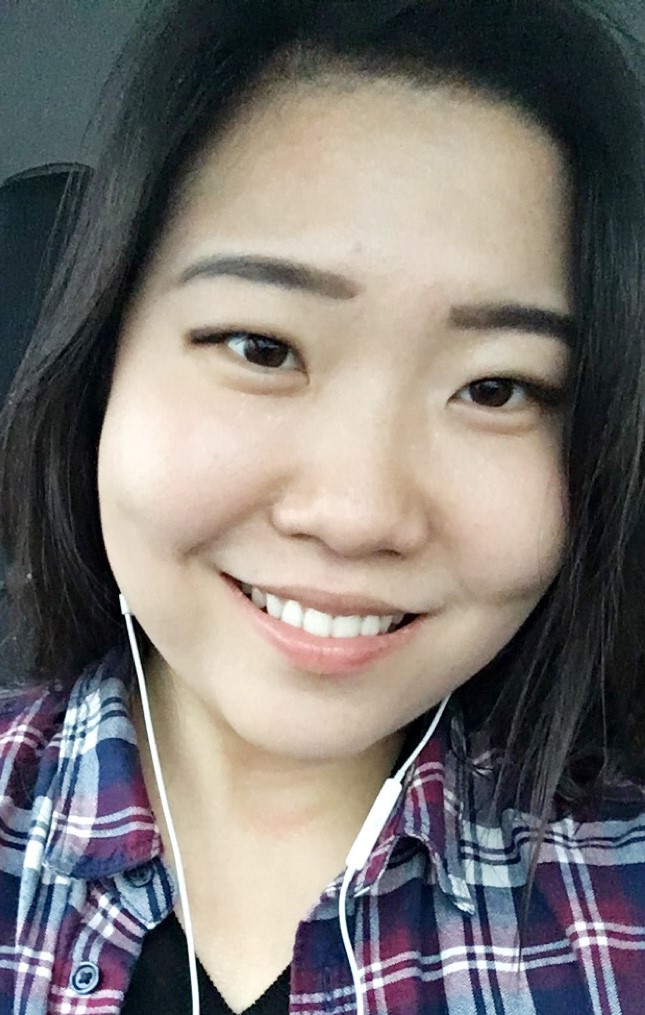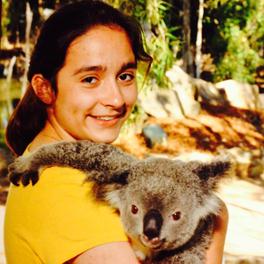Had a blast running in the Fourth Annual Imani Bolt 5K Run for Health. It's always a bonus when we can get out and run while supporting a great cause. To find out more about the incredible resources provided by the Imani Clinic to local communities check out their webpage here.
New lab members
We are pleased to welcome three new lab members to the Dennis lab this quarter.
postdoc
Alex Colon-Rodriguez started in January having received a dual major Ph.D. from Michigan State University. An avid animal lover, perhaps fittingly, her research will focus on developing high-throughput screens of neurodevelopmental phenotypes in zebrafish.
grad student
Aarthi Sekar joined in April as part of the IGG grad group (originally hailing from Mills College). Armed with a remarkably diverse background in science outreach and research, she will focus on human duplicated genes.
grad student
Colin Shew joined in April as part of the IGG grad group having graduated from UCLA. With a general interest in evolution and mountaineering, he will focus on human duplications and gene regulation.
Consider donating to the MIND Institute as you march for science
The UC Davis MIND Institute -- a center dedicated to awareness, understanding, prevention, care, and cures of neurodevelopmental disorders -- is raising money towards research. All gifts are matched up to $100K by a generous donor. Please consider giving today!
haiku for the keepers of our danio rerioooo
fish always hungry
work tirelessly day and night
thank you dear feeders!
New paper out in Nature Ecology and Evolution
Our study characterizing human specific segmental duplications is out! After searching through hundreds of human and great ape genome sequencing, we identified unique human duplications containing 33 gene families (80 total paralogs). Of these, 10 were found in all humans (thousands tested) in a putatively functional form and expressed in tissues, making them candidate genes for innovative features in modern humans.
Novel homo sapien specific duplications of TCAF 1 and 2 identified, genes that play roles in cold sematosensation.
Halloween costume contest
Though unable to defend our 2015 title in the annual UC Davis Genome Center Halloween costume contest, we had a lot of fun with our Mario-kart theme. :)
Congratulations to the LaSalle lab winning with their epigenetic-inspired costumes!
Welcome to our new gaggle of undergrads
This summer and fall quarters, the Dennis lab has welcomed a number of talented undergrads and a high school student to our group. Click on their images below to learn more about them!
Review on human adaptation via gene duplication available online
Included amongst other great reviews in Current Opinion in Genetics & Development issue on Genetics of human origin. Link to the article here.
Figure 2a - SRGAP2C antagonism of ancestral SRGAP2 leading to changes in neuronal dendrites (courtesy of Current Opinion in Genetics & Development)
Our summer crew
The lab is full of energy this summer, with new undergrad Juliann Wang recently joining and BMCDB/IMSD-fellow student Daisy Castillo Guzman rotating in our group. Also, we were happy to have undergrad Eva joining us full time and welcome soon-to-be JRS Kyle back from his monthlong European backpacking tour.
courtesy of elferino
Dennis lab awarded IDDRC Pilot grant
Thank you to the UC Davis MIND Institute for funding our pilot experiments modeling autism in zebrafish! We are well under way generating mutant fish in the lab thanks to efforts by talented undergrads Kyle and Eva and look forward to developing phenotypic screens in the coming months.
You can find more information on the UC Davis IDDRC here.
Congratulations to Paulina, new ARTP fellow
Cheers to Paulina, who was recently awarded a fellowship through the Autism Research Training Program (ARTP) at the MIND Institute! Paulina will use the fellowship to learn more about the clinical and neurological aspects of autism spectrum disorders (ASDs). She will also pursue a research project focused on the functional outcomes of structural variation at genomic hotspots across primates and in patients with neurological disease.
With Megan recently joining the faculty of the ARTP, we expect many exciting future interactions with trainees and investigators at the MIND Institute as we continue to investigate the underlying components of ASDs.
Learn more about the ARTP here.
Welcome our newest undergrad, Eva
We have another new addition to the Dennis lab, undergrad Eva Ferino! While pursuing her B.S. in Animal Sciences here at UC Davis, she will be working with Kyle to generate transgenic zebrafish. Notably, when not studying hard and working in the lab, her hobbies include reading, digital art, food, and crime shows. Certainly we can think of a couple others in the lab who share many of the same interests. Welcome Eva!
Farewell Jennifer and welcome Paulina
Welcome to Davis, Paulina!
As we say a teary farewell to an original founding member of the lab, Jennifer (who is embarking on an exciting career in law enforcement as she finishes her masters), we also welcome our first postdoc, Paulina Carmona-Mora! Originally from Chile, Paulina comes to us fresh off her PhD in UNSW Australia, Sydney, where she worked on the function of transcription factor GTF2IRD1 implicated in Williams-Beuren Syndrome. We look forward to equally exciting projects in our group!
Dennis Lab awarded a Sloan Fellowship!
We are excited and honored to receive such an amazing fellowship! Thank you to the Sloan Foundation and the UC Davis community for all of their support.
Some links to more info:
